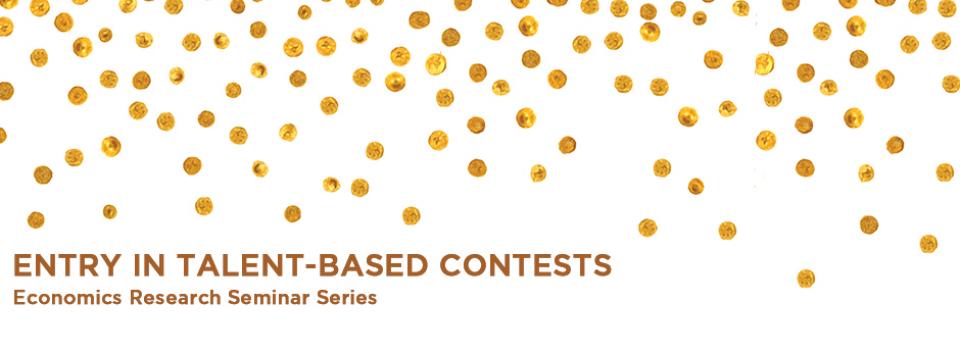
We study talent-based contests with endogenous entry where an agent’s talent or ability purely determines the outcome. Entry is costly but worthwhile if there is a sufficient probability of winning the prize. Entrants differ in ability, which is private information. The distribution from which a player’s ability is drawn is common knowledge. We restrict attention to Bayesian Nash equilibria in cautiously rationalizable strategies. When individuals are ex ante symmetric, there is a unique equilibrium where, a positive fraction of the time, neither player chooses to enter. When individuals' abilities are drawn from different distributions, the stronger player (ex-ante) enters no matter what her ability level is, whereas the weaker player enters only when her realized type is sufficiently strong. We take limits as the two distributions converge and show that this asymmetric outcome persists, even at the limit. We then show that handicapping the stronger player, increases the likelihood of entry by the other player. As a result, by choosing an optimal level of handicap, we can increase efficiency and the average ability of the chosen contestant. Thus, improving welfare by increasing the likelihood of entry by a weaker participant provides a rationale for affirmative action.


